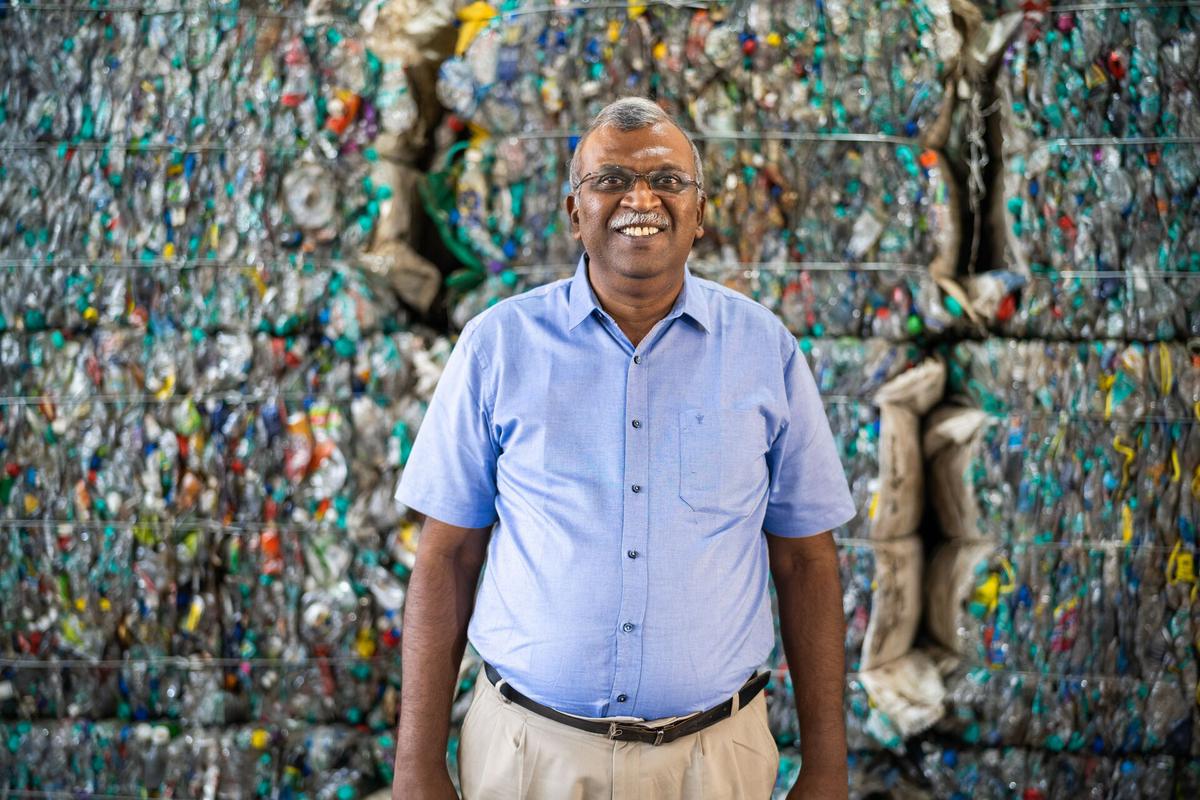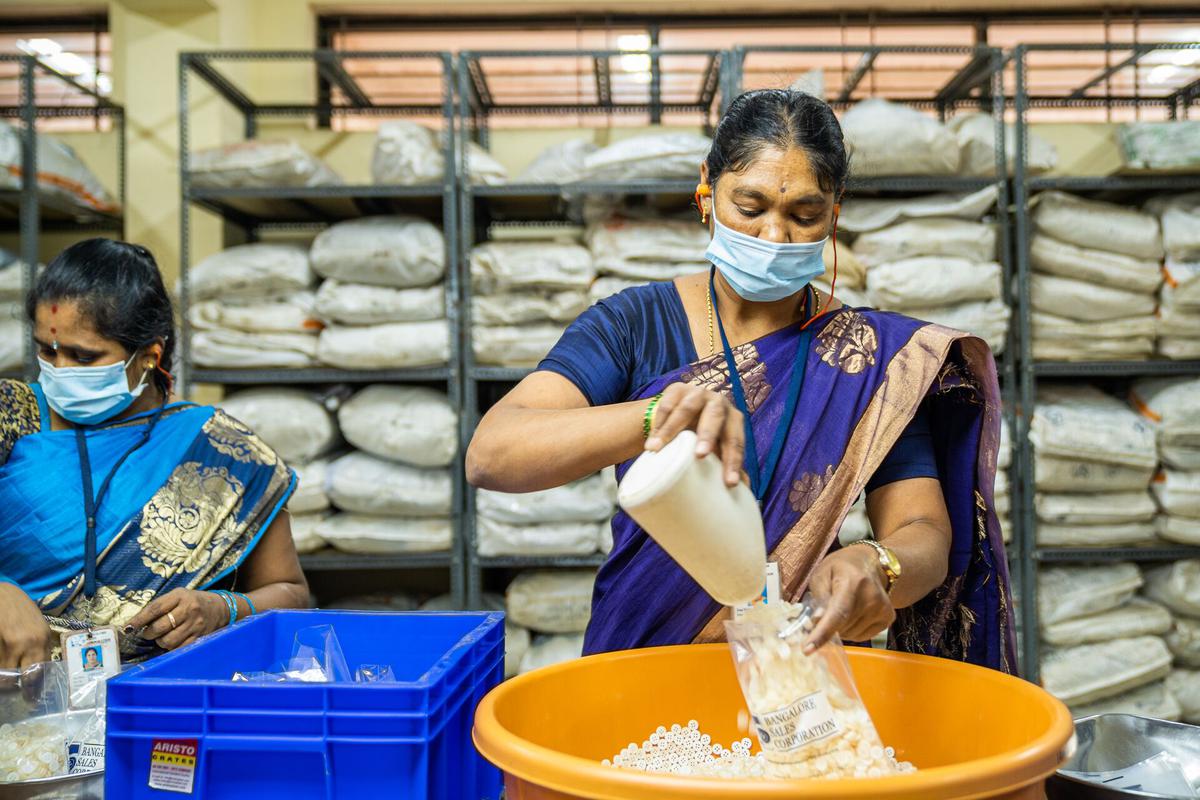Plastic waste collected by informal waste pickers in Bengaluru turns into buttons on H&M’s clothing produced in India
Plastic waste collected by informal waste pickers in Bengaluru turns into buttons on H&M’s clothing produced in India
Following on from sustainability-led initiatives like apparel recycling and their most recent biodegradable line of children’s clothing, global retailer H&M has now announced a program that lets us recycle buttons. Going forward, all H&M Group products such as shirts, blouses, skirts produced in India will have these exclusive buttons that are partly crafted from recycled plastic after-consumer collected by waste pickers in Bengaluru.
The launch is part of H&M Foundation’s four-year initiative, Collective Shakti (which supports informal waste pickers in Bengaluru), which has partnered with social enterprise Hasiru Dala Innovations and WaterAid India. Stockholm-based Maria Bystad, Strategy Lead, H&M Foundation, says the collective strength has reached around 20,000 rag pickers and their family members (as of March 2022) and 2.6 of the general population of Bengaluru as part of a perception change campaign. million people have been reached. Around the garbage collectors.
A cotton shirt sporting recycled buttons
tracking the last mile
Elaborating on the inner workings of the project, Shekhar Prabhakar, Co-Founder and CEO, Hasiru Dala Innovations, says that once H&M saw the benefit of engaging with their organization in terms of additional social impact for the waste pickers and Backed by a Fair Trade Guarantee. World’s Fair Trade Organization, the acronym was simple. “They wanted assurance of reliable supply of consistent quality PET flakes with traceability of waste. The challenge was in setting a fixed price through the six-month season at which they operate, while plastic waste behaves like a commodity linked to oil prices. We were able to collaboratively agree on a pricing strategy that worked for both H&M and HDI,” he says.

Shekhar Prabhakar, Co-Founder and CEO, Hasiru Dala Innovations
Buttons for PET waste source, workers name, social security, salary and working conditions in the collection center can be traced. HDI is currently piloting a blockchain enabled software solution to demonstrate traceability. Short-term benefits for “waste entrepreneurs”, as Prabhakar likes to call them, include reasonable prices, prompt payments through bank transfers and assured offtake. “Long-term effects include the integration of waste pickers and informal waste workers into the circular economy supply chain, reaching end user markets, among corporates interested in working with them,” he says.

a worker packaging the buttons
color challenge
Eco-quotient aside, given how recycled plastic comes in a variety of colors and sizes, was it a challenge to maintain uniformity for the buttons? The apparel giant says that the color doesn’t vary by a lot, and they produce a lot with the same color and the shade can be adjusted to the previous lot by adjusting the color pigment amounts. “There’s really no limit when it comes to size, color, etc., so in that case there’s no difference from any other button,” says Danielle Baumann, product quality specialist at HM Assortment Support & Development. The design teams from the various brands of the H&M Group have chosen the form of buttons for the design as they do for all clothing.